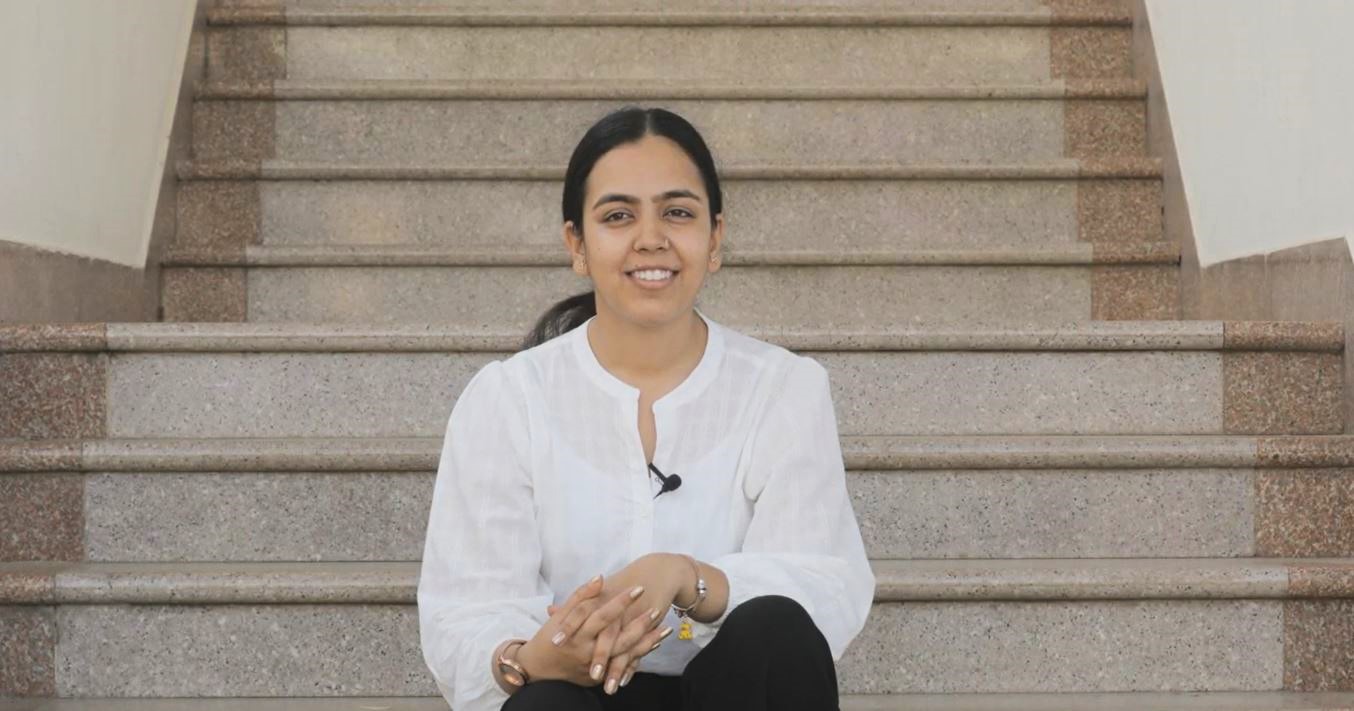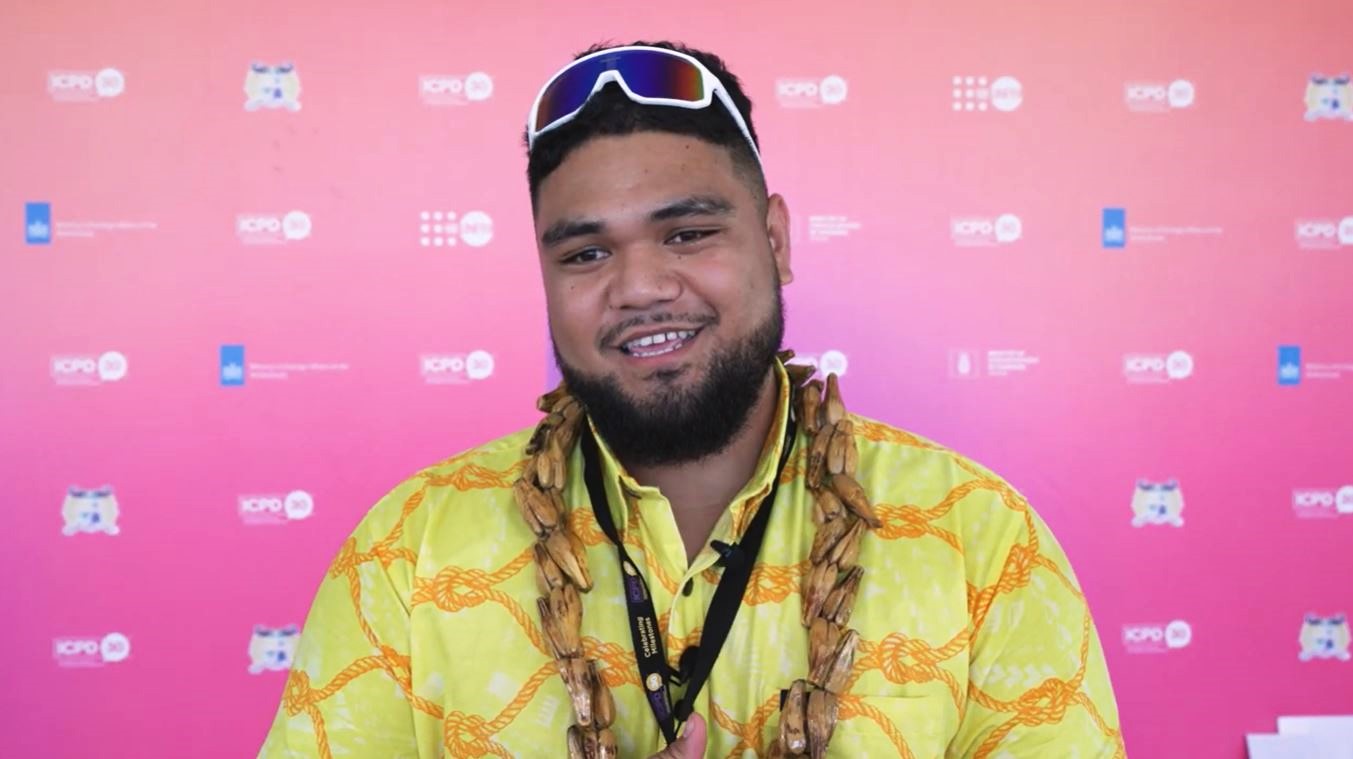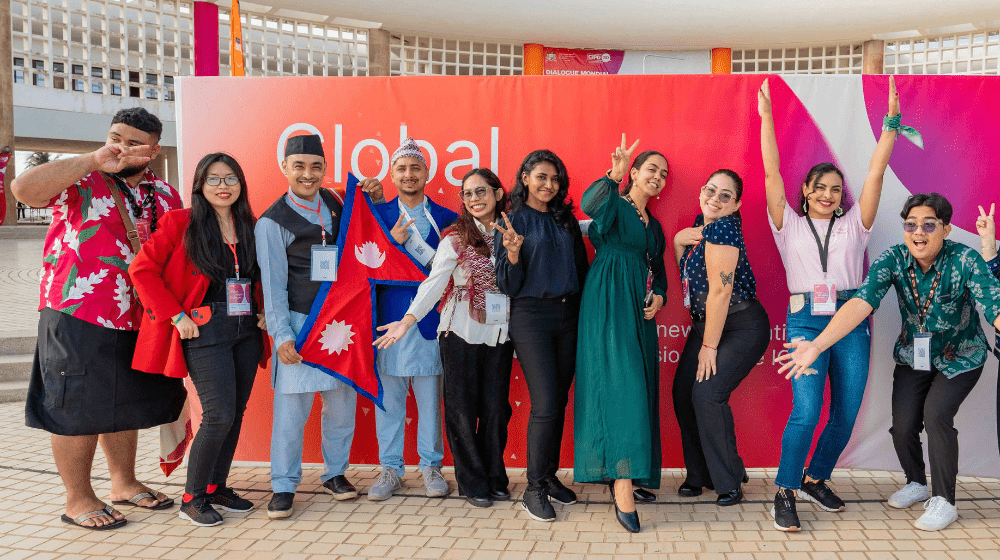“Your life is your choice. You need to own your life and make decisions that are right for you. Nothing or no one else will take action on your behalf. This is what motivated me to start working in the social development field. Many of my friends around me were being forced into early child marriage. I knew I had to step up and be a part of the change I wanted to see in my community.”
These are the powerful words of Priya Rathore from India, who attended the 2024 ICPD30 Global Youth Dialogue in Cotonou, Benin earlier this year, advocating for an end to child marriage.
Priya is one of more than 400 young people from 130 countries who gathered to discuss the way forward in shaping a future of global development - a future where the rights of young people around the world are upheld. Hosted by UNFPA, the Government of the Republic of Benin, and the Governments of Denmark and the Netherlands, the dialogue brought together youth activists, Member State Ministers and regional and intergovernmental organizations to identify youth-driven priorities ahead of the UN Summit of the Future in September 2024.
Globally, the population of young people is over 1.8 billion strong. Representing nearly a quarter of the world’s population, young people have the power and potential to shape our future. Yet, too many are unable to fully contribute and participate in society. The compounding issues of the climate crisis, urbanization, migration, and rapid digitalization make it even harder for young people, particularly for girls, to participate fully in society. But when empowered and given the right opportunities, youth are effective drivers of change.
Rightly so, the continued relevance of the International Conference on Population and Development (ICPD) and progress of the world as a whole, rests on the involvement of young people. They hold the power to take the learnings back to their own countries, and share these experiences and skills with other young people to create the future they want to see.

As Priya says, “In the past we have seen older people often designing policies on our behalf, but I think it is time for us as young people to take responsibility and draft our own policies. Because only we know the issues we are facing so it's high time that we sit together and come up with solutions collectively.”
When young people have a say in the choices that are made, policies and services are more likely to respond to their rights and needs. The Global Youth Dialogue was designed against this very premise - to bring young people together for collective action and collective learning. It was not only a platform that celebrated young people as changemakers, partners in development and custodians of the Programme of Action, but it also brought together the collective concerns of young people.
As Gutu from Samoa stated, “I have been a youth volunteer attached to the Samoa Family Health Association since 2018. Here we find creative ways to talk about sexual and reproductive health, particularly with my peers and other like minded individuals, to spread awareness amidst the cultural barriers that we face in Samoa. Being here in Benin will help me learn new strategies that I can take back with me to take this message forward….I am excited to learn from other young leaders.”
But young people are too often excluded by decision-makers, deprived of opportunities to show their leadership skills, and are not given a seat at the table.

“The biggest challenge young people face, I think, is the lack of opportunities. For example, I am the only one from the Pacific Islands who was able to make it to Benin. There were meant to be others but there is a huge distance that we need to travel. It took me 3 days just to be here."
Gutu continues to say, "So this, coupled with other logistical issues, really hinders young people from my part of the world to have opportunities to be represented on the global stage. I would really like to see more Pacific Islanders represented in conferences like this.”
Making a real difference in the lives of young people rests on shared leadership and shared responsibility. Investing in their education, health, and livelihoods, as well as supporting youth-led organizations, initiatives, and partnerships, is crucial for achieving sustainable development. This is why UNFPA works to promote meaningful youth participation in national and international settings. Their voices matter - whether they are from the world’s most populous country or living in small island states - and their active participation as agents of change must be promoted.
This International Youth Day 2024, as young people increasingly navigate through technological transitions, alongside demographic and climate changes, let’s call on more investments to be made to create a conducive and progressive pathway for young people so together we can bolster their potential and expand their possibilities to shape a more equitable, peaceful and just future. A future that needs to be shaped now.
As the UNFPA Executive Director, Dr Natalia Kanem stated at the Dialogue: "Young people are leading the charge to usher in another 30 years of progress in sexual and reproductive rights. They must be included in conversations about their own futures."


